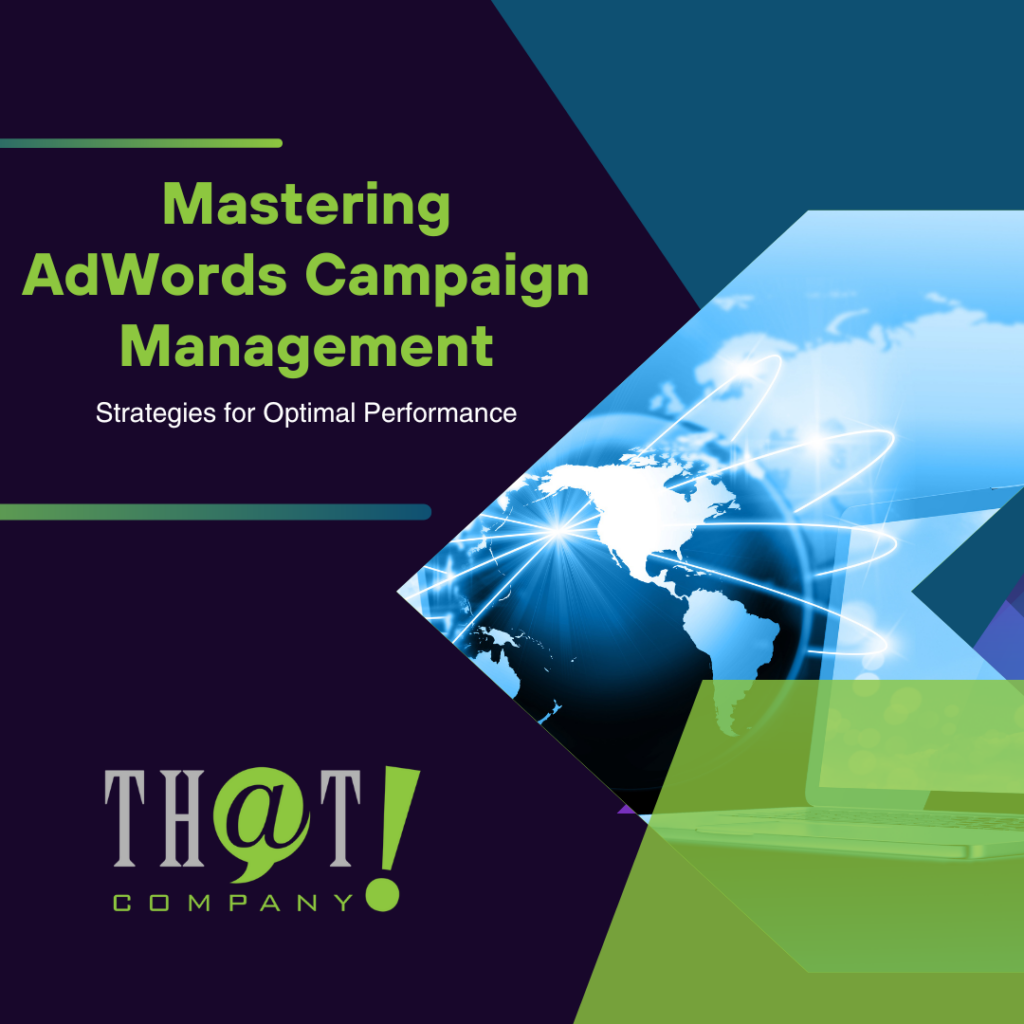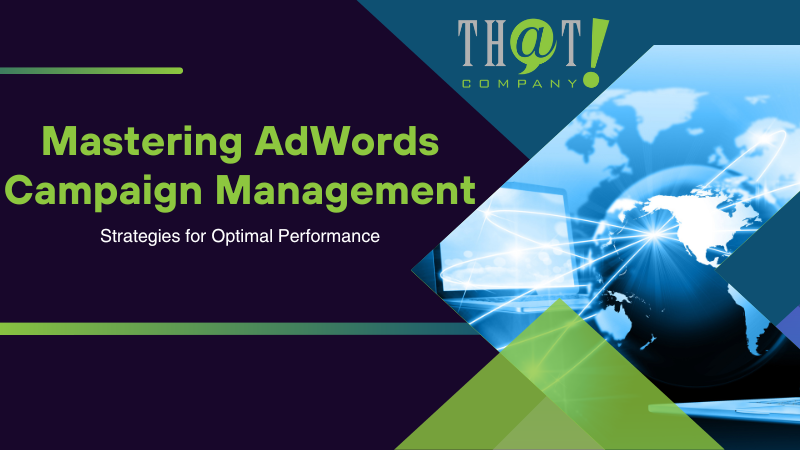
Struggling with AdWords campaign management? Simplify your approach with actionable strategies that can significantly improve your campaigns’ performance. From keyword targeting to budget allocation, we’ll guide you through optimizing every facet of your AdWords efforts. Expect insights on tackling common obstacles and tips for sustained success, all without unnecessary jargon or fluff.
Key Takeaways
- Effective Google Ads campaign management boosts ad performance and ROI through precise keyword targeting, compelling ad copy, and landing page optimization.
- Advanced techniques in bid strategy, budget management, performance analysis, and ongoing testing are crucial for refining and maximizing AdWords campaign success.
- Overcoming common AdWords challenges, utilizing management tools, and considering outsourcing to experts can greatly improve campaign efficiency and outcomes.
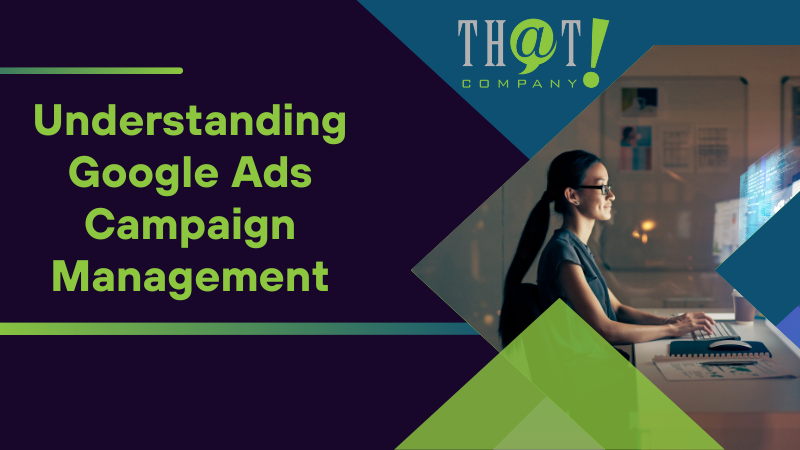
Understanding Google Ads Campaign Management
In the realm of digital marketing, AdWords campaign management is akin to a thrilling roller coaster ride. It’s an ongoing process that involves:
- Managing and optimizing ad campaigns to stay relevant
- Adapting to market changes
- Maximizing impact envision yourself diving into ad groups, constantly optimizing and testing ads, adding negative keywords, and evaluating overall ad performance.
This process revolves around keyword targeting, ad copy, and landing page optimization. Each of these elements is like a piece of a jigsaw puzzle, and when they come together, they create a successful Google Ads campaign. And the best part? The thrill of seeing your campaign performance soar to new heights!
The Role of Google Ads Campaign Management
Taking on the role of an AdWords campaign manager, a digital marketer becomes akin to a maestro conducting a symphony. The tasks at hand include:
- Achieving marketing campaign objectives
- Managing all aspects of Google Ad campaigns
- Shaping and refining ad campaigns
- Managing paid search landing pages
Targeting your ads based on factors such as location, interests, and search history ensures they reach potential customers exactly when they need them.
Benefits of Effective Ads Campaign Management
Imagine a scenario where you’ve:
- optimized your ad groups
- created separate ad groups for better targeting
- ensured highly targeted ads
- diligently tracked campaign metrics
- included negative keywords
What’s the result? Enhanced ad performance and an increased return on investment. Precise audience targeting and timely, location-specific ad serving allow for budget optimization and cost savings.
And the cherry on top? Higher conversion rates driven by honed ad targeting, smart ad spend allocation, and compelling ad copy.
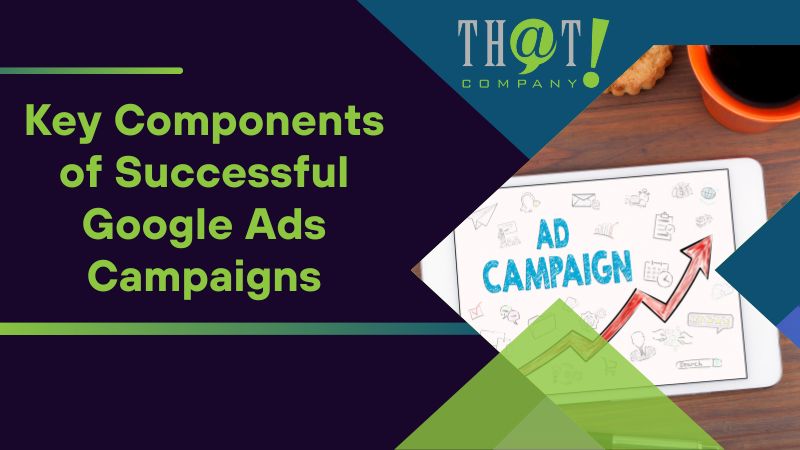
Key Components of Successful Google Ads Campaigns
Crafting a successful Google Ads campaign mirrors the process of baking a perfect cake, requiring just the right ingredients in just the right proportions. What are these ingredients? They include optimizing keywords, finding the right balance between broad, phrase, and exact match keywords, and managing your budget, CPC, and Quality Score effectively. Avoiding common Google Ad mistakes is crucial to achieving success in your Google Ads campaign.
Keyword Selection and Targeting
Selecting the appropriate keywords for your Google Ads campaign can be compared to picking the perfect spices for a dish. You need to pick specific keywords that directly relate to your ad’s theme and target customers who may be interested in a particular product. Utilizing Google Search can help you find the most relevant keywords for your Google Ads campaign.
Keyword targeting serves as a potent strategy, enabling the display of ads to users actively seeking specific keywords or browsing related webpages.
Ad Copy and Design Optimization
An appealing ad copy and design can render your Google Ads campaign as captivating as a meticulously crafted movie trailer. By organizing your ads into a well-structured ad group, they captivate potential customers, enabling the assessment of impact and performance, and should center on user benefits to stimulate clicks.
Landing Page Optimization
The landing page acts as your Google Ads campaign’s grand finale, comparable to the dessert that concludes a meal. It’s where you need to impress and convert your audience. Landing page optimization is all about:
- Ensuring lightning-fast page speeds
- Maximizing lead generation opportunities
- Aligning content with ads for seamless message delivery
- Fine-tuning content length for maximum user engagement.

Advanced AdWords Campaign Management Techniques
Enhancing your Google Ads campaign management skills parallels mastering a challenging sport. You need a solid foundation, a good understanding of the game, and then you can start implementing advanced techniques. One of the key components of advanced AdWords campaign management is bid strategy and budget management. This involves setting appropriate bids for your keywords and effectively allocating your budget to maximize return on investment.
Another significant aspect of advanced Google Ads campaign management is performance monitoring and analysis. This involves tracking key metrics and making data-driven decisions to optimize your campaigns. And of course, you can’t overlook the importance of ongoing testing and iteration. This involves continually refining and improving your campaigns based on performance data and insights.
Bid Strategy and Budget Management
The implementation of a successful bid strategy and effective budget management can be likened to playing a game of chess. It requires strategic moves and a clear vision of your end goal.
Here are some key steps to follow:
- Shift your campaign budgets towards high-performing campaigns.
- Focus on identifying and prioritizing keywords that generate conversions.
- Maximize your return on investment with a limited budget.
By following these steps, you can improve your bid strategy and budget management for better results.
Performance Monitoring and Analysis
Monitoring and analyzing your current Google Ad performance in your Google Ads campaign is comparable to undergoing a health check-up. It allows you to identify any issues early on and take corrective measures. Key performance indicators (KPIs) such as:
- Impressions
- Click-through rate
- Conversion rate
- Cost per conversion
- Average position
- Quality score
are essential to monitor for success.
Ongoing Testing and Iteration
The process of continuous testing and iteration in AdWords campaign management resembles a scientific experiment. You hypothesize, test, analyze, and then refine your campaigns based on the results.
This process empowers marketers to experiment, gain valuable insights from past efforts, and consistently enhance the performance of their campaigns.
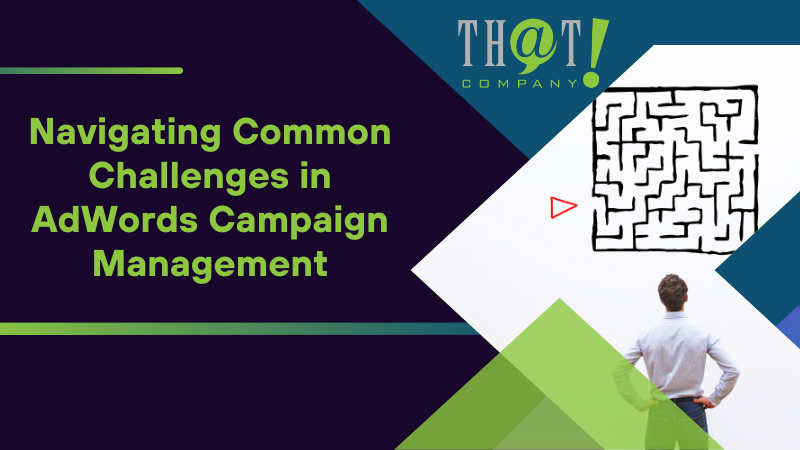
Navigating Common Challenges in AdWords Campaign Management
Though an AdWords campaign management journey inevitably entails challenges, with the right strategies, these can be overcome, much like a ship steering through a storm. Some common challenges include dealing with limited budgets, overcoming low Quality Scores, and addressing ad disapprovals.
Dealing with Limited Budgets
Working with a limited budget can be likened to walking a tightrope. It requires careful balance and strategic decision-making. Here are some tips to maximize your return on investment with a limited budget:
- Shift your campaign budgets towards high-performing campaigns.
- Focus on identifying and prioritizing keywords that generate conversions.
- Continuously monitor and optimize your campaigns to ensure you are getting the most out of your budget.
By following these tips, you can make the most of your limited budget and achieve your advertising goals with multiple ads.
Overcoming Low Quality Scores
Addressing low Quality Scores may seem akin to ascending a steep hill. It’s challenging but absolutely achievable. You can conquer low Quality Scores by improving ad relevance, landing page experience, and expected click-through rate.
Addressing Ad Disapprovals
Resolving ad disapprovals can be equated to piecing together a puzzle. It requires understanding the problem, finding the right solution, and implementing it effectively. When your ad gets disapproved, it means missed opportunities. But don’t worry, it’s a chance to make your ad even better and compliant with Google’s policies.

Consider Outsourcing Google Ads Campaign Management to That! Company to Scale Your Agency
Entrusting AdWords campaign management to an external entity can be analogous to engaging a personal trainer. You get expert guidance, access to resources, and a strategic plan to achieve your goals. That! Company provides agencies with an advantage by offering access to a team of PPC specialists for professional campaign management. They also provide a dedicated account manager for client meetings and regular updates as part of their White Label PPC Services.
Furthermore, That! Company’s White Label PPC Services include detailed keyword analysis, bid management, and continual evaluation of campaign effectiveness. By outsourcing AdWords campaign management to That! Company, agencies can handle a larger client load, become more profitable, and expand their service offerings, thereby enhancing client relationships and improving client retention. Choose the right white label marketing services.
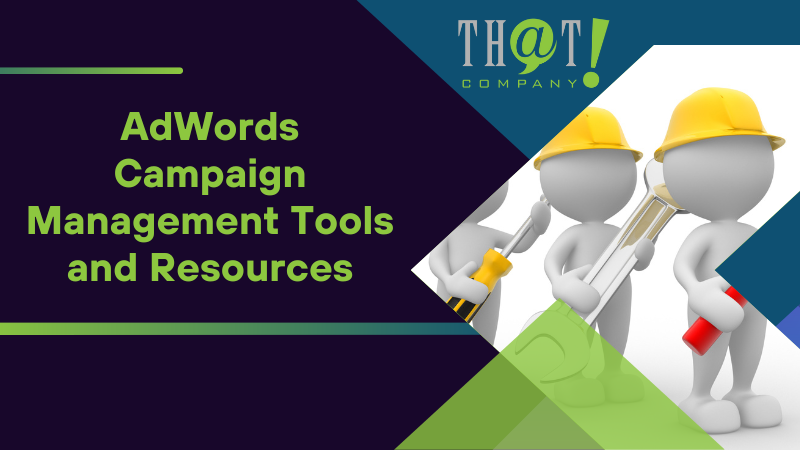
AdWords Campaign Management Tools and Resources
Just as a carpenter needs his tools, so does the AdWords campaign manager. There are several tools and resources available that can help you manage and optimize your AdWords campaigns. These include:
- Google Ads Editor
- Third-party management platforms
- Outsourcing services from That! Company
- Various educational resources
Google Ads Editor
Google Ads Editor functions as a personal command center, facilitating the management of your Google Ads account and enabling offline changes. It allows you to create separate ad groups, manage multiple Google Ads accounts and campaigns, make offline edits, and swiftly implement a large number of changes across your ad account, including those related to the Google Display Network.
Third-Party Management Platforms
Third-party google ads management platforms act as secret weapons on the Google Ads battlefield. They offer advanced algorithms for bidding strategies, ad copy optimization, and the power to pinpoint and remove irrelevant keywords and underperforming ads.
Outsourcing to That! Company
Engaging That! Company equates to having a team of experts readily accessible. They handle all processes in-house, ensuring high-quality support and services.
They provide a fun and creative work environment, which translates to exceptional client work and support.
Educational Resources
Education is the key to mastering any skill, and Google Ads campaign management is no exception. There are various educational resources available, including online courses, books, white label SEO services and the Google Ads Help Center, that can help you improve your understanding and skills in AdWords campaign management.
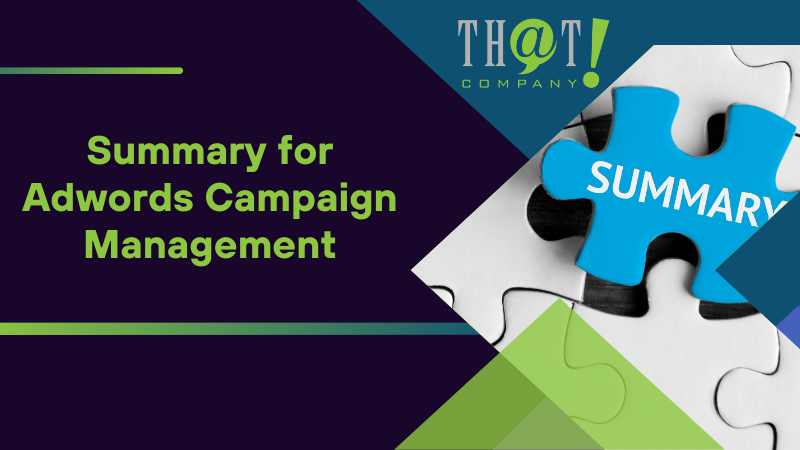
Summary
In conclusion, mastering AdWords campaign management is a journey filled with continuous learning and optimization. Whether you’re dealing with keyword selection and targeting, ad copy and design optimization, or tackling common challenges, remember that success lies in constant refinement and improvement. And remember, tools, resources, and expert assistance are always available to help you navigate your way to success.

Frequently Asked Questions
What is adword management?
Adword management is a service that can significantly improve the results of your pay-per-click advertising, taking away the risks and challenges of handling it on your own. It can help you achieve better outcomes with less hassle and uncertainty.
How do I manage my Google campaign?
To manage your Google campaign effectively, regularly check your ad performance, reevaluate targeting, A/B test ad copy and design, review negative keywords, and optimize landing pages. Additionally, from the Campaigns page of your manager account, you can easily adjust the campaign’s budget, status, and name, or make other necessary changes.
How do you structure an AdWords campaign?
When structuring your AdWords campaign, follow best practices such as creating separate Search campaigns for brand keywords, avoiding targeting multiple networks in one campaign, and ensuring your campaign structure supports your goals. Headlines, descriptions, display paths, and final URLs should also be carefully optimized for maximum impact. Start implementing these strategies now and see the difference in your campaign’s performance!
What is the role of AdWords campaign management?
The role of AdWords campaign management is to expertly manage and optimize pay-per-click advertising campaigns on Google Ads, effectively reaching your target audience and maximizing your ROI.
How can keyword targeting enhance Google Ads campaigns?
Keyword targeting enhances Google Ads campaigns by allowing you to reach people who are actively searching for specific keywords or visiting webpages related to those keywords, increasing the chances of reaching potential customers.

